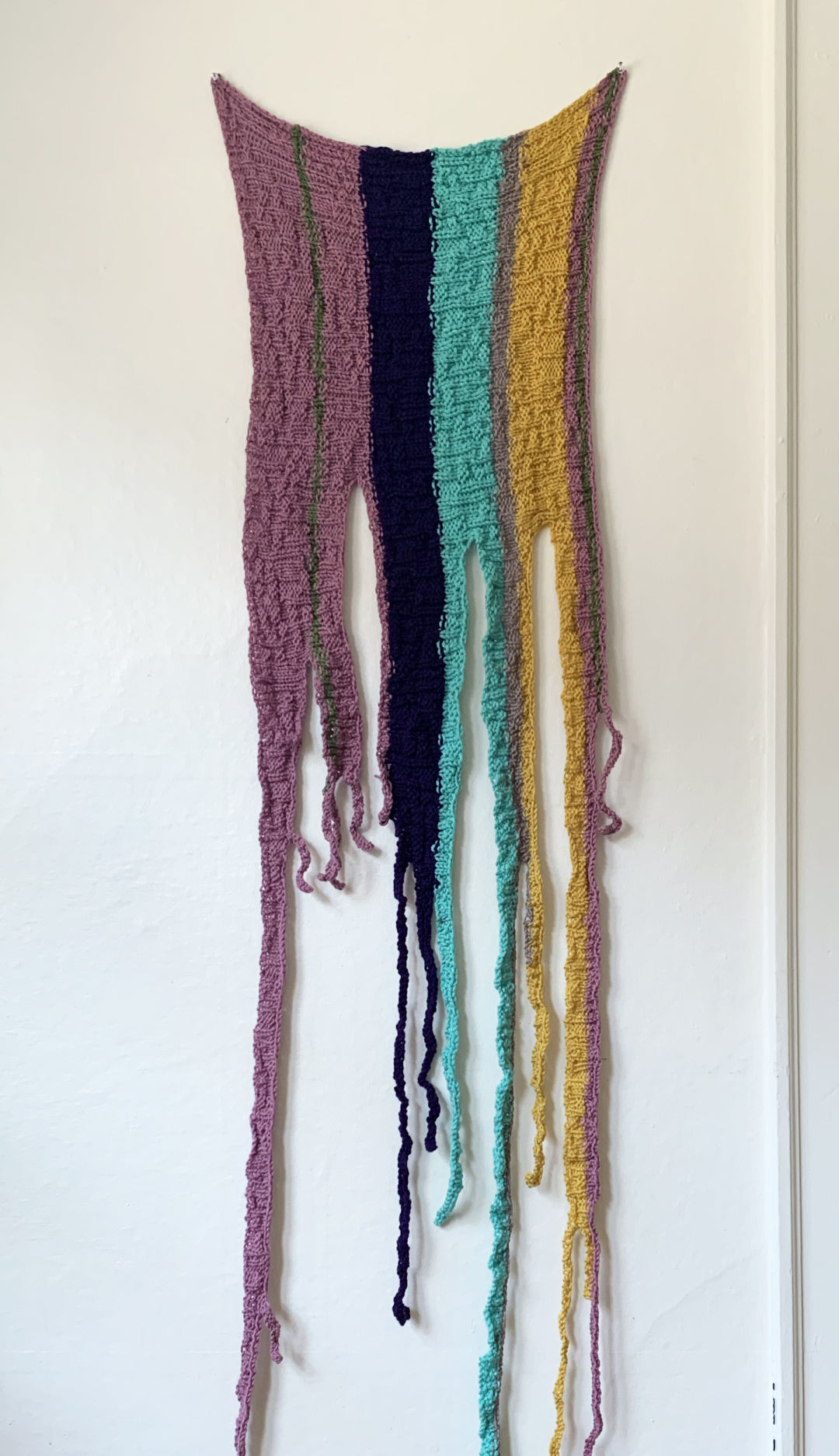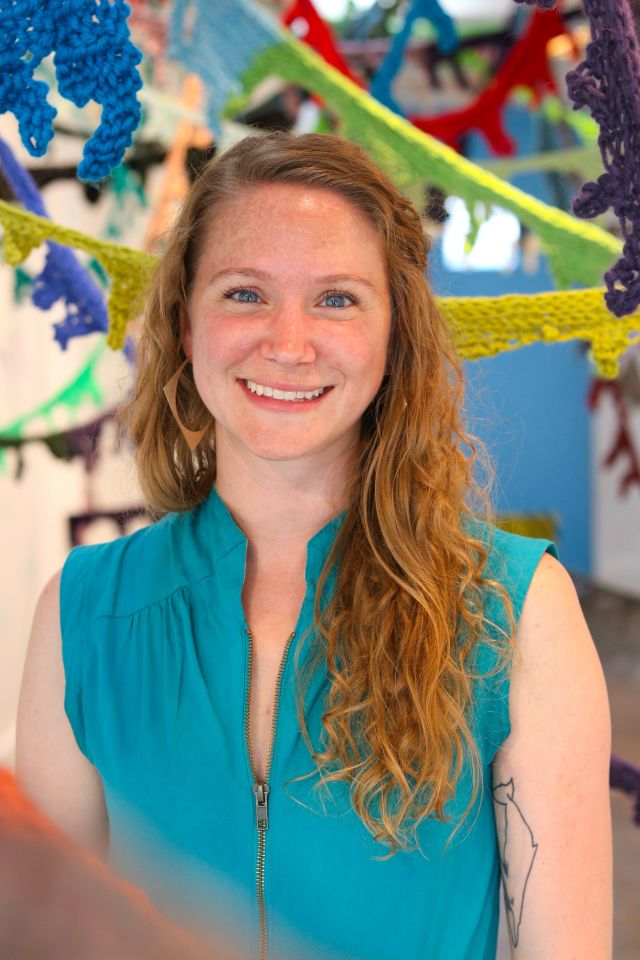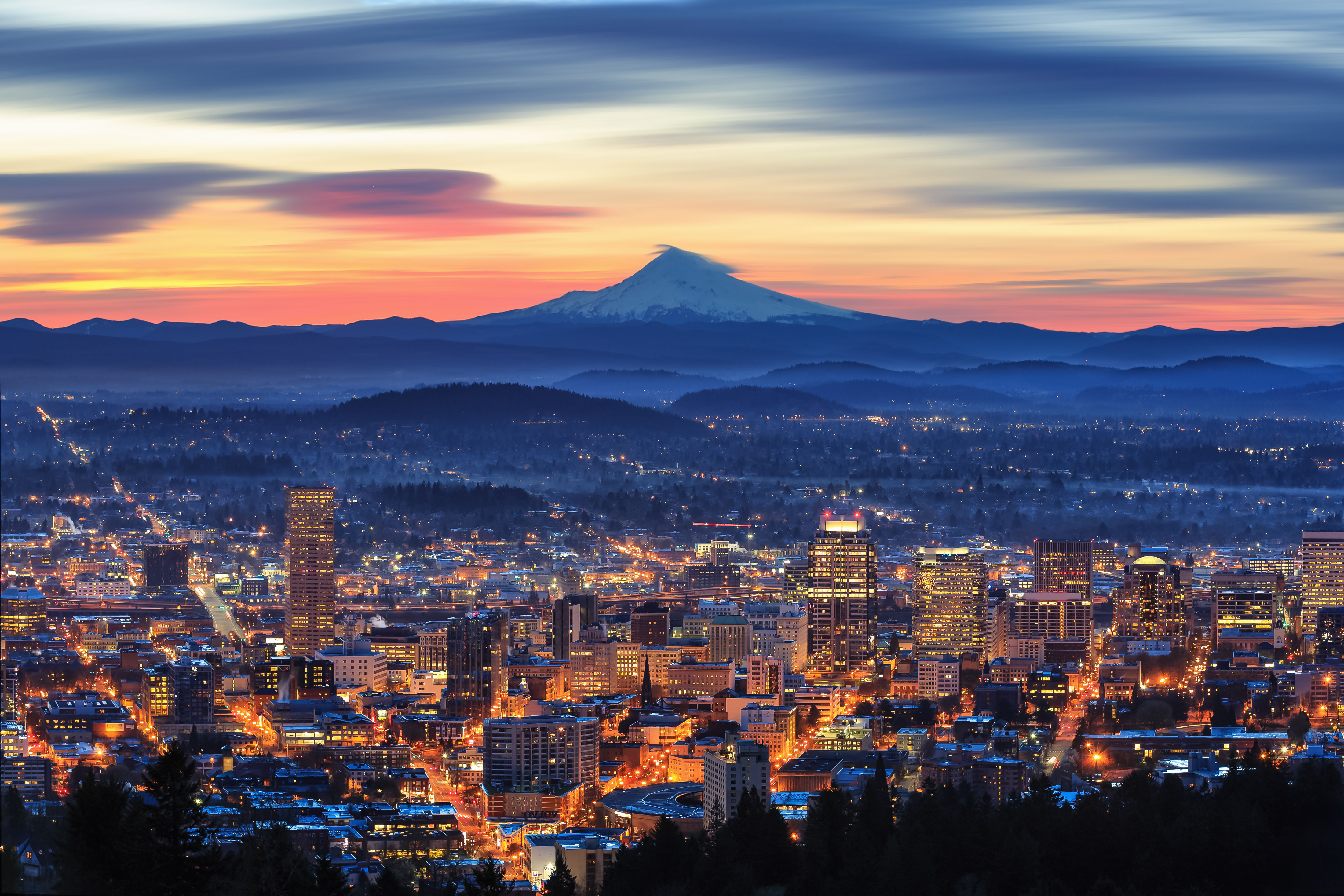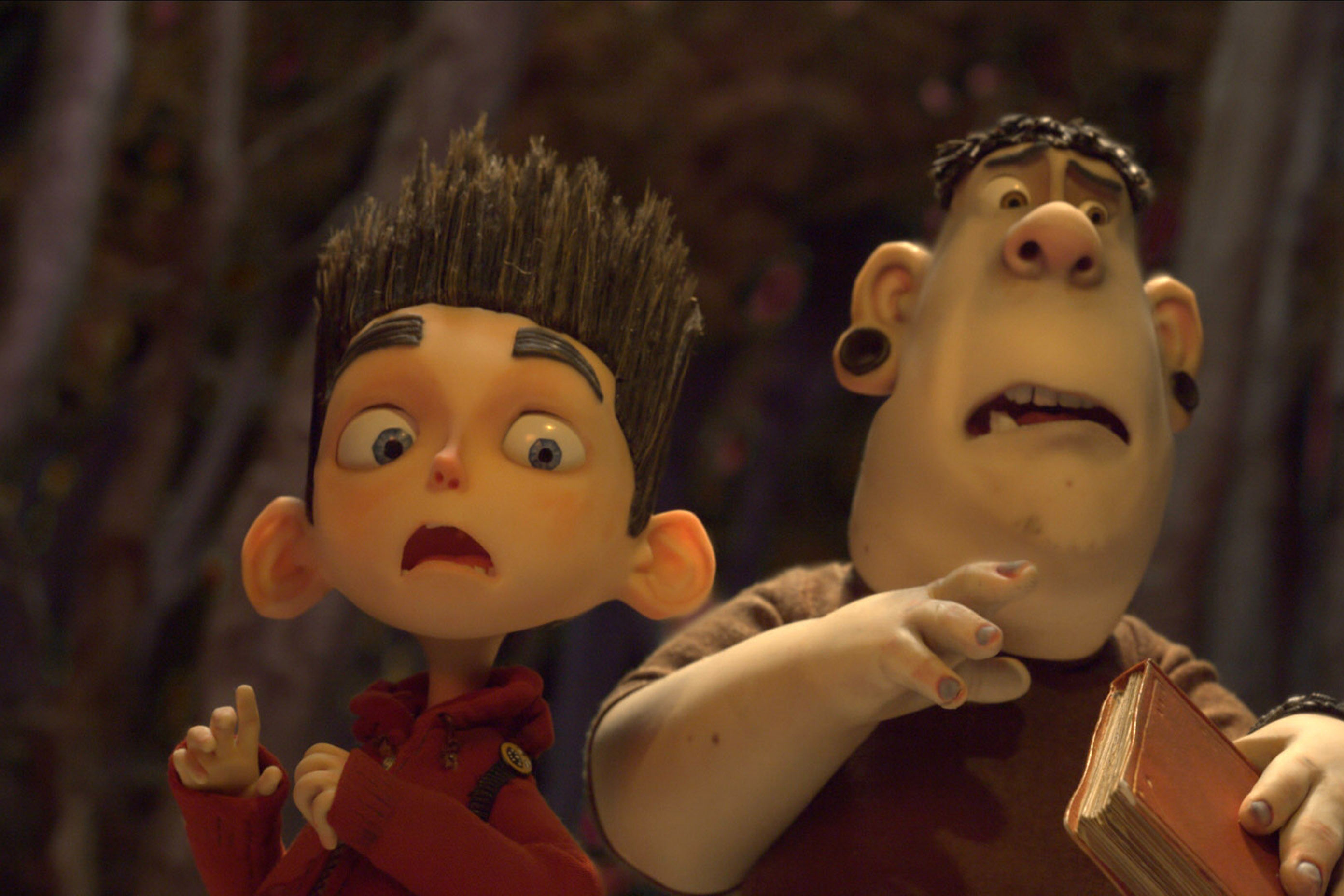This Portland Artist Is Knitting The City's Therapy Session

A work-in-progress installation by Amy Wike for the upcoming Portland Textile Month.
Image: Courtesy Amy Wike
.--. --- .-. - .-.. .- -. -.. / .. ... / -.-. --- -- .--. .-.. .. -.-. .- - . -.. .-.-.-
For those of you not fluent in Morse Code, the above reads thus: Portland is complicated.
Illustrator by day, fiber artist by night, and Portlander since July 2020 (by way of the Midwest, then Washington, DC), Amy Wike is finding that out firsthand.
For a commission for October's Portland Textile Month, Wike is collecting impressions of the city, both official and individual, gleaned from community outreach, letters to the editor, Portland's Wikipedia entry, and this summer’s locally controversial Travel Portland ad. Then she's translating them—each color representing a different source—into Morse code, the dots, dashes and lines knitted into one piece which trails off at the edges, rather like the city itself, these days.
The piece is called “This Is/Is This A City,” a title that nods to the idea that Portland could use a good therapist to figure itself out.
“It will be all of those perspectives, all of those voices in a single, cohesive piece,” Wike says. "It will look like a funky wall hanging or tapestry, but when you look closer, the texture will be a time stamp of this one moment of the people who live here right now. In a month, or 10 years, it could be fully irrelevant—the identity will change moment to moment as people come in and out of the city.”
The reactions she has gathered for the piece so far have ranged from hopeful to unsparing. A sampling:
“A hurt child not able to deal with its generational trauma because it was never given the tools to do so.”
“Ambivalence rules!!!”
“Portland is finding itself. Coming to terms with a dark history and filled with residents hoping and dreaming of change.”
“My hometown since 1949 has undergone many changes including wartime. Vanport flood. An earthquake and I saw Mt Saint Helen's flaming from where I still live in Portland. I hate what my city has become now with all the trash people caused and the fires and shootings. OUR LOVELY ROSE CITY PORTLAND RUINED BY OTHERS WHO DONT CARE OR GIVE A DAMN ABOUT PEOPLE! I am kind and confident and considerate of most folks except I have no patience with those who choose to be destructive and trashing this lovely city!”
“Portland is a city in flux. We’re hurting and we need to sit with that hurt in order to fix it; I’m hopeful for what we can become, but we have a lot of work to do.”
“Portland is vibrancy and grass and flowers and rain and suffering and strife and striving.”
“I don't know and does it even matter if the world is about to end?”
“Portland is the city that shaped who I am today.”
That’s hardly comprehensive, but it indicates how nuanced and individual feelings about this city are right now. Settling on a single identity is a gargantuan, virtually impossible charge, Wike says.

The artist Amy Wike.
Image: Courtesy Amy Wike
“The aim is not to come out the other end of this with an articulated, crisp, definition for this city, but to encourage the conversation that I feel and hear around me in a well-rounded way, and give people an outlet for the thoughts I hear bubbling up all around me,” she says.
The final product will likely be six to eight feet wide, and at least 12 feet tall, Wike says. Her work will be on view at Gallery Go Go at Pioneer Place downtown from October 24–31; on October 23, she’ll host an artist’s talk and knitting workshop there from 2–3:30 pm. Supplies are provided, but space is limited; register here, and find out more about the rest of the Portland Textile Month programming here.




